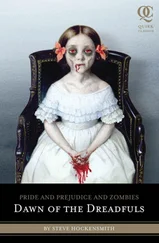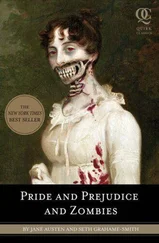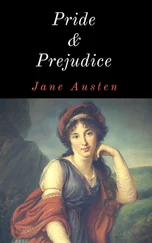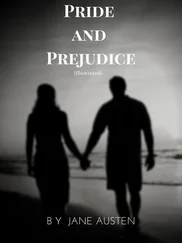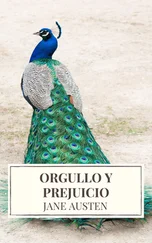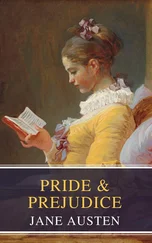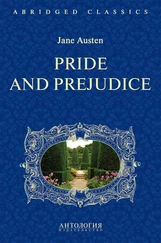Jane Austin - Pride and Prejudice
Здесь есть возможность читать онлайн «Jane Austin - Pride and Prejudice» — ознакомительный отрывок электронной книги совершенно бесплатно, а после прочтения отрывка купить полную версию. В некоторых случаях можно слушать аудио, скачать через торрент в формате fb2 и присутствует краткое содержание. Жанр: unrecognised, на немецком языке. Описание произведения, (предисловие) а так же отзывы посетителей доступны на портале библиотеки ЛибКат.
- Название:Pride and Prejudice
- Автор:
- Жанр:
- Год:неизвестен
- ISBN:нет данных
- Рейтинг книги:3 / 5. Голосов: 1
-
Избранное:Добавить в избранное
- Отзывы:
-
Ваша оценка:
- 60
- 1
- 2
- 3
- 4
- 5
Pride and Prejudice: краткое содержание, описание и аннотация
Предлагаем к чтению аннотацию, описание, краткое содержание или предисловие (зависит от того, что написал сам автор книги «Pride and Prejudice»). Если вы не нашли необходимую информацию о книге — напишите в комментариях, мы постараемся отыскать её.
Pride and Prejudice — читать онлайн ознакомительный отрывок
Ниже представлен текст книги, разбитый по страницам. Система сохранения места последней прочитанной страницы, позволяет с удобством читать онлайн бесплатно книгу «Pride and Prejudice», без необходимости каждый раз заново искать на чём Вы остановились. Поставьте закладку, и сможете в любой момент перейти на страницу, на которой закончили чтение.
Интервал:
Закладка:
“Aye—because she asked him at last how he liked Netherfield, and
he could not help answering her; but she said he seemed quite
angry at being spoke to.”
“Miss Bingley told me,” said Jane, “that he never speaks much,
unless among his intimate acquaintances. With _them_ he is
remarkably agreeable.”
“I do not believe a word of it, my dear. If he had been so very
agreeable, he would have talked to Mrs. Long. But I can guess how
it was; everybody says that he is eat up with pride, and I dare
say he had heard somehow that Mrs. Long does not keep a carriage,
and had come to the ball in a hack chaise.”
“I do not mind his not talking to Mrs. Long,” said Miss Lucas,
“but I wish he had danced with Eliza.”
“Another time, Lizzy,” said her mother, “I would not dance with
_him_, if I were you.”
“I believe, ma’am, I may safely promise you _never_ to dance with
him.”
“His pride,” said Miss Lucas, “does not offend _me_ so much as
pride often does, because there is an excuse for it. One cannot
wonder that so very fine a young man, with family, fortune,
everything in his favour, should think highly of himself. If I
may so express it, he has a _right_ to be proud.”
“That is very true,” replied Elizabeth, “and I could easily
forgive _his_ pride, if he had not mortified _mine_.”
“Pride,” observed Mary, who piqued herself upon the solidity of
her reflections, “is a very common failing, I believe. By all
that I have ever read, I am convinced that it is very common
indeed; that human nature is particularly prone to it, and that
there are very few of us who do not cherish a feeling of
self-complacency on the score of some quality or other, real or
imaginary. Vanity and pride are different things, though the
words are often used synonymously. A person may be proud without
being vain. Pride relates more to our opinion of ourselves,
vanity to what we would have others think of us.”
“If I were as rich as Mr. Darcy,” cried a young Lucas, who came
with his sisters, “I should not care how proud I was. I would
keep a pack of foxhounds, and drink a bottle of wine a day.”
“Then you would drink a great deal more than you ought,” said
Mrs. Bennet; “and if I were to see you at it, I should take away
your bottle directly.”
The boy protested that she should not; she continued to declare
that she would, and the argument ended only with the visit.
Chapter 6
The ladies of Longbourn soon waited on those of Netherfield. The
visit was soon returned in due form. Miss Bennet’s pleasing
manners grew on the goodwill of Mrs. Hurst and Miss Bingley; and
though the mother was found to be intolerable, and the younger
sisters not worth speaking to, a wish of being better acquainted
with _them_ was expressed towards the two eldest. By Jane, this
attention was received with the greatest pleasure, but Elizabeth
still saw superciliousness in their treatment of everybody,
hardly excepting even her sister, and could not like them; though
their kindness to Jane, such as it was, had a value as arising in
all probability from the influence of their brother’s admiration.
It was generally evident whenever they met, that he _did_ admire
her and to _her_ it was equally evident that Jane was yielding to
the preference which she had begun to entertain for him from the
first, and was in a way to be very much in love; but she
considered with pleasure that it was not likely to be discovered
by the world in general, since Jane united, with great strength
of feeling, a composure of temper and a uniform cheerfulness of
manner which would guard her from the suspicions of the
impertinent. She mentioned this to her friend Miss Lucas.
“It may perhaps be pleasant,” replied Charlotte, “to be able to
impose on the public in such a case; but it is sometimes a
disadvantage to be so very guarded. If a woman conceals her
affection with the same skill from the object of it, she may lose
the opportunity of fixing him; and it will then be but poor
consolation to believe the world equally in the dark. There is so
much of gratitude or vanity in almost every attachment, that it
is not safe to leave any to itself. We can all _begin_ freely—a
slight preference is natural enough; but there are very few of us
who have heart enough to be really in love without encouragement.
In nine cases out of ten a woman had better show _more_ affection
than she feels. Bingley likes your sister undoubtedly; but he may
never do more than like her, if she does not help him on.”
“But she does help him on, as much as her nature will allow. If
_I_ can perceive her regard for him, he must be a simpleton,
indeed, not to discover it too.”
“Remember, Eliza, that he does not know Jane’s disposition as you
do.”
“But if a woman is partial to a man, and does not endeavour to
conceal it, he must find it out.”
“Perhaps he must, if he sees enough of her. But, though Bingley
and Jane meet tolerably often, it is never for many hours
together; and, as they always see each other in large mixed
parties, it is impossible that every moment should be employed in
conversing together. Jane should therefore make the most of every
half-hour in which she can command his attention. When she is
secure of him, there will be more leisure for falling in love as
much as she chooses.”
“Your plan is a good one,” replied Elizabeth, “where nothing is
in question but the desire of being well married, and if I were
determined to get a rich husband, or any husband, I dare say I
should adopt it. But these are not Jane’s feelings; she is not
acting by design. As yet, she cannot even be certain of the
degree of her own regard nor of its reasonableness. She has known
him only a fortnight. She danced four dances with him at Meryton;
she saw him one morning at his own house, and has since dined
with him in company four times. This is not quite enough to make
her understand his character.”
“Not as you represent it. Had she merely _dined_ with him, she
might only have discovered whether he had a good appetite; but
you must remember that four evenings have also been spent
together—and four evenings may do a great deal.”
“Yes; these four evenings have enabled them to ascertain that
they both like Vingt-un better than Commerce; but with respect to
any other leading characteristic, I do not imagine that much has
been unfolded.”
“Well,” said Charlotte, “I wish Jane success with all my heart;
and if she were married to him to-morrow, I should think she had
as good a chance of happiness as if she were to be studying his
character for a twelvemonth. Happiness in marriage is entirely a
matter of chance. If the dispositions of the parties are ever so
well known to each other or ever so similar beforehand, it does
not advance their felicity in the least. They always continue to
grow sufficiently unlike afterwards to have their share of
vexation; and it is better to know as little as possible of the
defects of the person with whom you are to pass your life.”
“You make me laugh, Charlotte; but it is not sound. You know it
is not sound, and that you would never act in this way yourself.”
Occupied in observing Mr. Bingley’s attentions to her sister,
Читать дальшеИнтервал:
Закладка:
Похожие книги на «Pride and Prejudice»
Представляем Вашему вниманию похожие книги на «Pride and Prejudice» списком для выбора. Мы отобрали схожую по названию и смыслу литературу в надежде предоставить читателям больше вариантов отыскать новые, интересные, ещё непрочитанные произведения.
Обсуждение, отзывы о книге «Pride and Prejudice» и просто собственные мнения читателей. Оставьте ваши комментарии, напишите, что Вы думаете о произведении, его смысле или главных героях. Укажите что конкретно понравилось, а что нет, и почему Вы так считаете.


